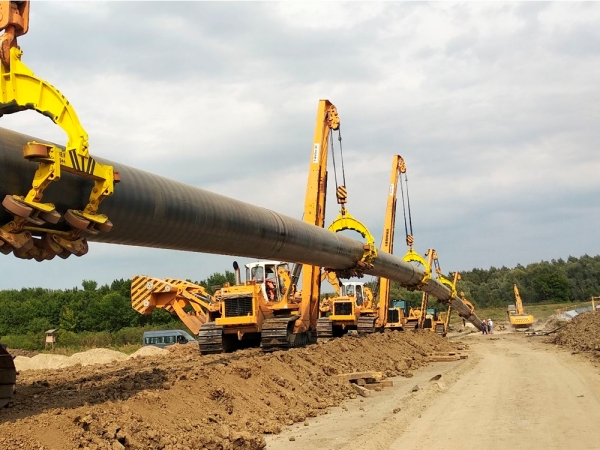Oil and gas pipeline transportation offers several advantages that make it a commonly used method of energy transportation. Here are some of the key advantages of oil and gas pipeline transportation.

High transportation efficiency: Oil and gas pipelines can transport large amounts of energy relatively quickly. Once a complete pipeline network is established, it can transport large amounts of oil and gas products continuously and efficiently.
Low energy consumption: Compared with other modes of transportation (such as freight ships, trucks), oil and gas pipeline transportation generally has lower energy consumption. During the pipeline transportation process, energy requires almost no additional power, reducing energy waste.
Cost-Effectiveness: It is generally more economical to transport oil and gas over long distances because once the pipeline is built, maintenance costs are relatively low and frequent refueling is not required.
Stability and reliability: Oil and gas pipeline systems are strictly designed and monitored to provide highly stable and reliable transportation services. This reduces the chance of accidents in transport and helps ensure continuity of energy supply.
Environmentally Friendly: Compared to other modes of transportation, oil and gas pipeline transportation generally has less impact on the environment. It reduces the risk of air and water pollution without producing significant tailpipe emissions.
Safety: Oil and gas pipelines have a high level of safety because their construction and operation are strictly regulated. Compared with other modes of transportation, the probability of accidents in oil and gas pipelines is relatively low and easy to monitor and repair.
Reduced traffic congestion: Oil and gas pipelines are not constrained by road or maritime traffic congestion, so delays caused by traffic congestion can be avoided in energy transportation.
Reduced human interference: Oil and gas pipelines are often buried underground or along inaccessible areas, reducing the risk of vandalism and theft.
It should be noted that although oil and gas pipelines have the above advantages, their construction and operation also face some challenges, such as potential impacts on the environment, safety management and other issues. Therefore, relevant regulations and standards need to be strictly adhered to in the planning, construction and operation of oil and gas pipelines to ensure their sustainability and safety throughout their life cycle.